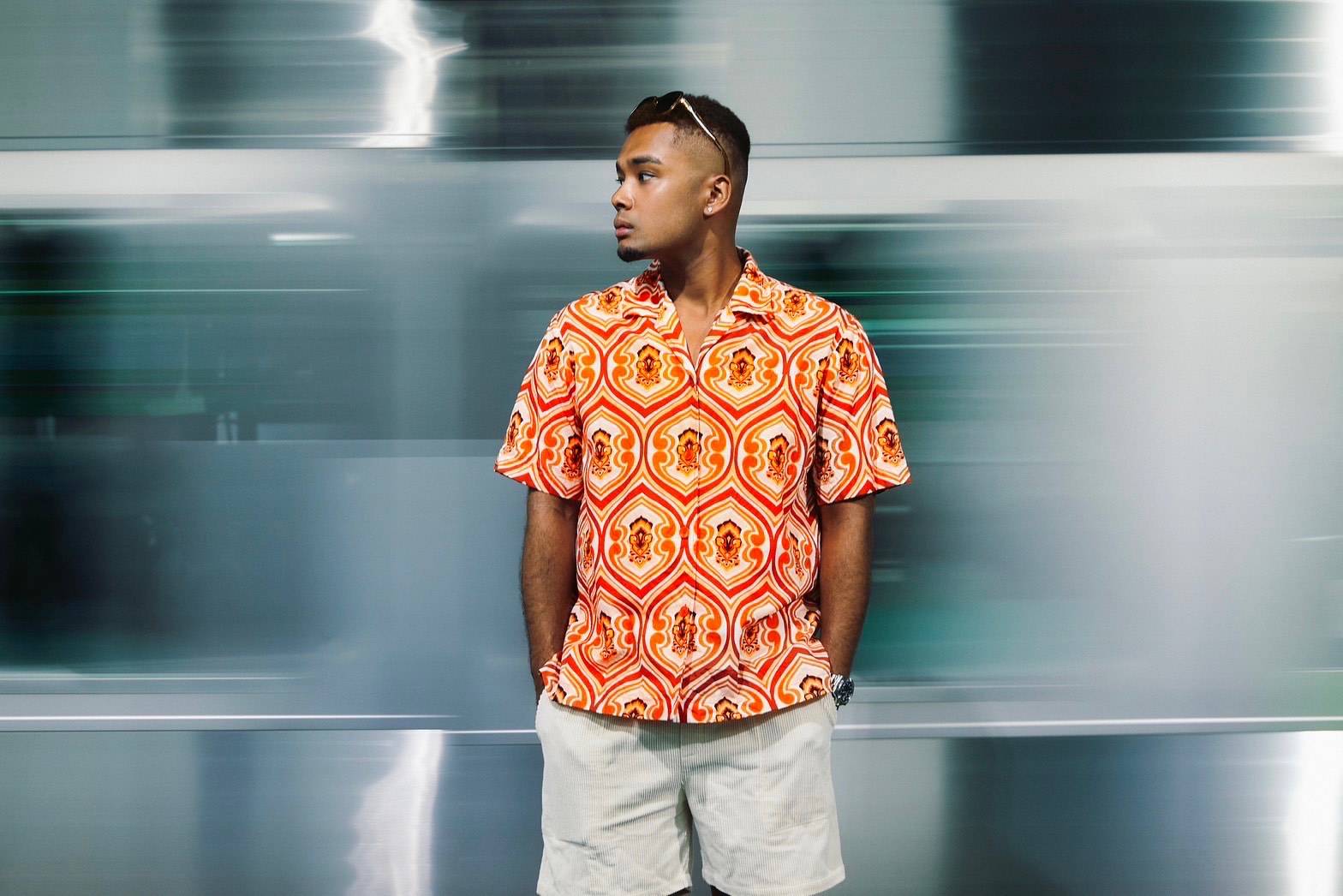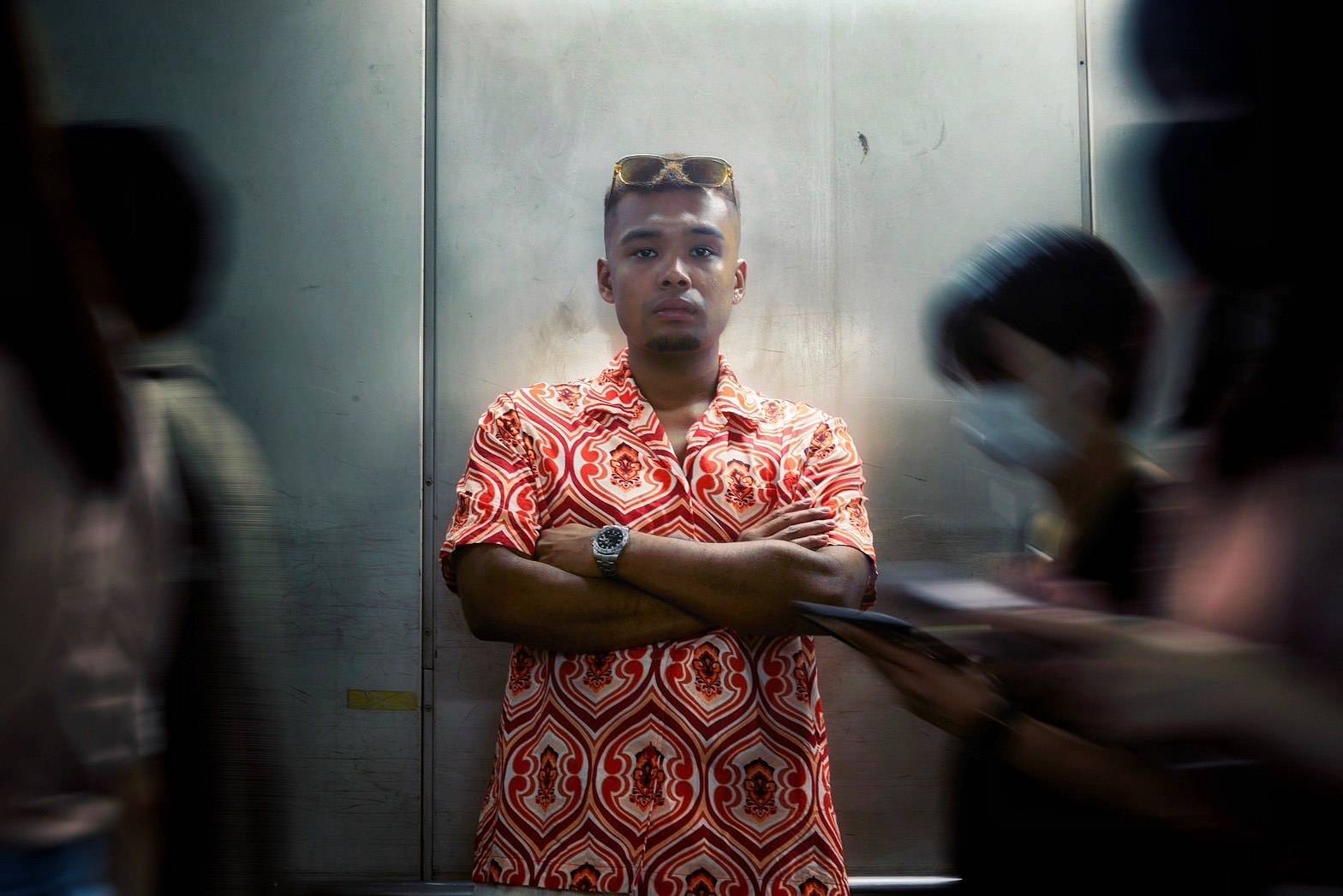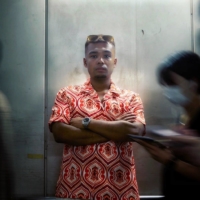Alexis Sato, 27, is an Osaka native with global connections. Half-Japanese, half-Trinidadian, he moved to the United States for high school before starting a career in music as a tour photographer. Having attended 500 events and festivals in 30 different countries over the course of five years, Alexis put the suitcase to one side in 2020 and founded Tsunagu Music — an agency based in Tokyo that specializes in artist bookings, event planning and talent management.
1. What were some of your early introductions to music? I started going to Osaka International School from the seventh grade and was introduced to a lot of American culture and music, specifically New York hip-hop. The crazy beats and synthesizers on tracks by the likes of A Tribe Called Quest and MF Doom are what really got me.
2. Moving to the U.S. must have been exciting then? My high school was in New Jersey, but every week I’d take the subway into New York, go to record stores and feel like I was touching the roots of all those artists I was into.
3. Did your tastes grow and evolve much during your time there? Alongside hip-hop, I began listening to EDM. At that time, New York was a hub for house music as well, which ties in with R&B, so you’d go to events and there’d often be both hip-hop and house playing.
4. The move surely had its challenges as well though, right? Although I’d come from an international school, I really couldn’t speak much English to begin with, so I had to carry this electronic dictionary around with me everywhere. That’s actually what led to my first friendship in America though.
5. The dictionary? Yeah, this guy sitting next to me once was like, “What is that — a mini laptop?” He was into Japanese culture, I was into EDM, and it turned out he was producing music with a small following on SoundCloud. I mentioned how I was wanting to go to these festivals like Ultra and EDC, and he said that one day he’d perform at all those places and bring me along.
6. And the rest, as they say, is history? By the time I was about to start college in California, this guy — Slushii is his name — had been picked up by Diplo and Skrillex, signed to a major management company and had his first festival season lined up. We moved to California together, and I started doing tour photography alongside school.
7. How was it balancing college and touring? Physically, I was tired. But mentally, it never really felt like hard work, as I wanted to do both.
That being said, going back and forth between the airport and school wasn’t the easiest. I’d often have to bring my suitcases with me to class. One time, I was taking an exam on my laptop during a flight and I ended up failing because the on-board Wi-Fi cut out.
8. Out of the hundred or so festivals you’ve been to, are there any that stand out in your mind? Sonar festival in Barcelona, which I went to in the summer of 2019 with an old friend from Sakai, my hometown in Osaka.
9. What made it so special? That year, it was a real mix of genres, so I got put on to so many different kinds of music, but I also just met so many wonderful people as well. Before the festival started, we were sitting in front of a store in Barcelona, having a drink, and this local came up to us and said that we were in their spot. We got chatting, and it turned out they were heading to Sonar as well. After that, we were in this group of 20 people, dancing until 9 a.m for three days straight. That summer made me realize that I want to work in music my entire life.
10. Why did you eventually stop touring? Aside from COVID putting a pause on everything, I was interested in starting a company of my own where I’d consolidate a lot of the middleman-type roles in the industry — booking artists, planning events, managing talent — into one entity. “Tsunagu” means to connect, and what we’re doing is essentially that: connecting the dots.

11. What do you hope to achieve with Tsunagu? We want to make music a reason for people to travel to Japan. The goal is to help diversify the scene here, add more flavor and ultimately build an infrastructure for the underground to monetize.
12. How does a Tsunagu event differ from other events? We really try to complement the music by incorporating the wider arts and making it even more of a memorable sensory experience. Stage design and location — the environment as a whole — is a big thing for us. I don’t see why a music event in a club shouldn’t be as visually impressive as a cool store in Daikanyama.
13. Any Tsunagu events to look out for later on in the year? We’ll be doing an open-air event on Nakanoshima, a sandbank in the center of Osaka, this August, so that’s one to keep an eye out for this summer. Looking slightly further ahead, we’re planning for a busy ski season, with events in Niseko throughout December.
14. As someone in their 20s, living in Japan, how do you stay informed about current affairs? I watch Abema Prime, this news channel on YouTube, as do many of my friends. I’d say it’s getting super popular with people my age.
15. Why do you think that is? I think it simply comes down to the fact that the previous generation, they’re the TV generation, so they consume a lot of TV news. But us, we watch YouTube, so that’s our gateway.
16. What do you personally have planned in the coming months? It’s still Tsunagu-related, but we have a private get-together planned in July, where we’re going to have a DJ on board a friend’s boat that we’ll be cruising for an hour and looping around places like Enoshima. It’s for fun, but we’ll film the set and put that out as well, just to show how we want to take the party to different places.
17. So it’s music work and play right through the season then? Nowadays, I actually do keep the two pretty separate and really don’t go to as many events as I used to.
18. What do you get up to in your downtime then? I have hobbies like golf and gaming, but I’m really all about traveling. And traveling isn’t necessarily about going far. You can take a bike and go to a different town, and that’s traveling. Every place has something great about it. You’ve just got to explore to find out what that is.
19. Have you done much exploring in Tokyo yet? I only recently moved here, and this city’s going to take me a long time to explore. I’m a beginner here.
20. Any areas you’re looking forward to spending more time in? It’s easy to overlook Shibuya, which I feel has so many layers to it. It’s crammed with people, sure, but on the flip side, there’s a lot of culture to dig into and discover as well.
More information on Tsunagu can be found at tsunagumusic.com and @tsunagumusic on Instagram.




















With your current subscription plan you can comment on stories. However, before writing your first comment, please create a display name in the Profile section of your subscriber account page.